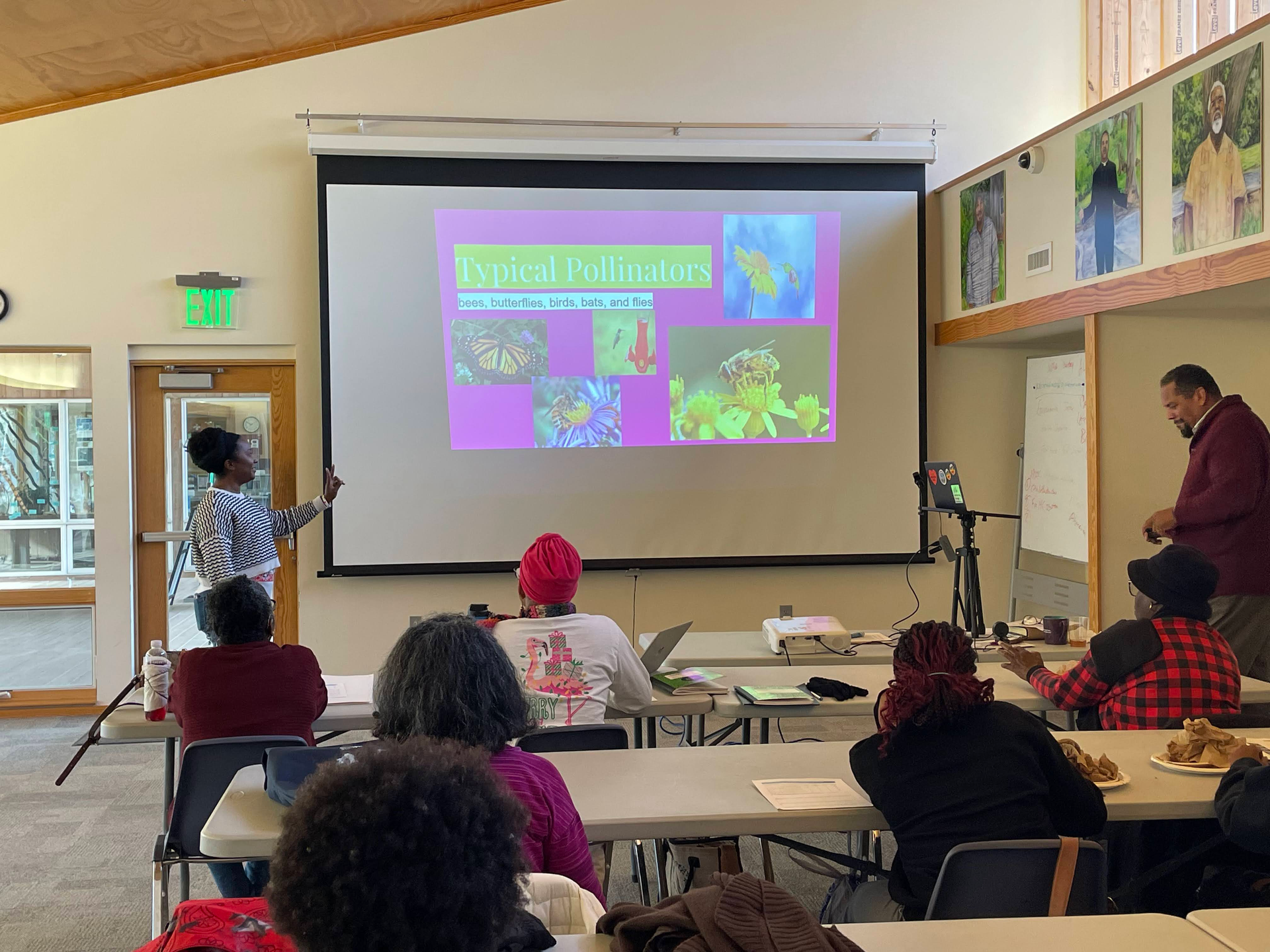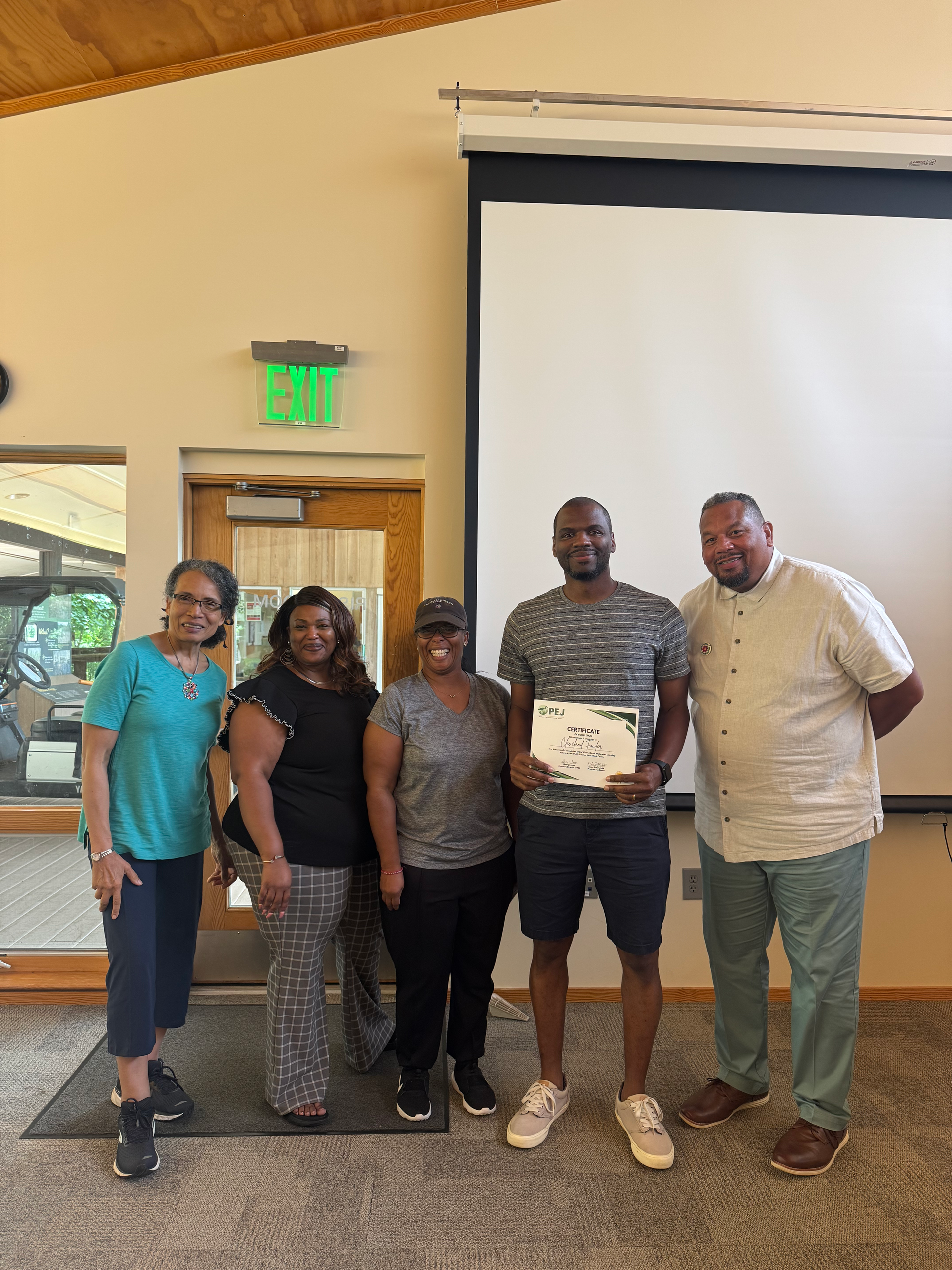Empowering Communities Through Watershed Education: The Walnut Creek Watershed Learning Network
PEJ's
Walnut Creek Watershed Learning Network (WCWLN)
is a six-week, cohort-style community education and empowerment initiative that PEJ first implemented in Spring 2021, based on the innovative Atlanta Watershed Learning Network model. The program empowers watershed residents with knowledge of environmental justice and civic engagement. Each cohort focuses on a specific environmental issue—ranging from water quality to heat islands—and, as part of the graduation requirements, participants must design, complete, and present a community project related to their cohort’s area of focus.
Educating participants about various topics such as stormwater management, green infrastructure and environmental justice
Making connections about why these topics are important to them and their communities
Providing participants with the tools to become more engaged stakeholders and be empowered to take action in protecting the integrity of their communities.
PEJ has conducted 7 WCWLNs with about 200 graduating members!
TIMELINE




